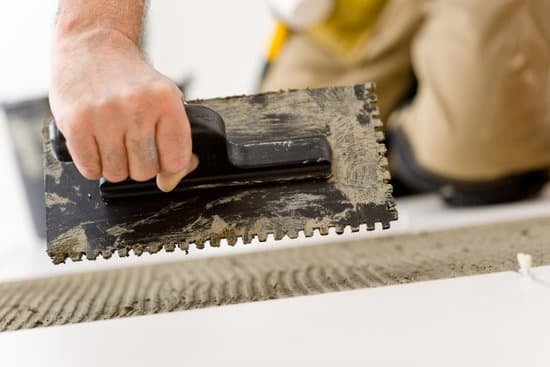Can you write off home improvement expenses? Understanding the ins and outs of home improvement expenses is crucial for homeowners, especially when it comes to tax deductions. This article delves into the concept of home improvement expenses and the importance of knowing whether they are tax-deductible.
When it comes to owning a home, making improvements and renovations is a common occurrence. These may include anything from remodeling a kitchen or bathroom to installing new windows or upgrading the HVAC system. However, many homeowners may not realize that these expenses could potentially be tax-deductible. Understanding what qualifies as home improvement expenses and how they can benefit your finances is essential for maximizing potential deductions.
In this article, we will explore what types of expenses qualify as home improvements, the criteria for tax-deductibility, and how to navigate the tax deduction process effectively. Additionally, we will discuss the distinction between home improvement expenses and general repairs, as well as provide tips for maximizing tax deductions on these expenses while staying within legal guidelines. By gaining a comprehensive understanding of home improvement expenses and tax deductions, homeowners can potentially reap significant financial benefits.
What Qualifies as Home Improvement Expenses?
Home improvement expenses encompass a wide range of costs associated with enhancing or renovating your property. These expenses can include both interior and exterior upgrades, from kitchen remodels and bathroom renovations to landscaping and roofing improvements. It is essential to understand what qualifies as home improvement expenses, especially when it comes to potential tax deductions.
Some common examples of home improvement expenses that may be eligible for tax deductions include energy-efficient upgrades such as installing solar panels or tankless water heaters, adding a security system, making accessibility modifications for elderly or disabled individuals, and repairing or replacing the roof. Additionally, any improvements that increase the value of your property, such as adding a swimming pool or building an outdoor deck, can also fall under this category.
When it comes to determining whether a particular expense qualifies as a home improvement cost, the key factor is whether it enhances the value of your property or prolongs its useful life. Routine repairs and maintenance tasks are not considered home improvement expenses for tax deduction purposes.
It’s important to keep detailed records of all your home improvement expenses, including receipts, invoices, and contracts. This documentation will be crucial when determining your eligibility for tax deductions on these expenses. By understanding what qualifies as home improvement costs and maintaining thorough records, you can potentially benefit from valuable tax deductions for these investments in your property.
| Common Home Improvement Expenses | Examples |
|---|---|
| Energy-Efficient Upgrades | Solar panels, tankless water heaters |
| Security Systems | Alarm systems, surveillance cameras |
| Accessibility Modifications | Ramps, stair lifts |
| Value-Enhancing Improvements | Swimming pool installation, outdoor deck construction |
Are Home Improvement Expenses Tax-Deductible?
When it comes to home improvement expenses, one common question that often arises is whether they are tax-deductible. Homeowners may wonder if the investments made in improving their property can result in potential tax benefits. Understanding the nuances of tax deductions for home improvement expenses can provide valuable financial advantages and incentives for undertaking such projects.
Guidelines and Criteria for Deducting Home Improvement Expenses
The first step in determining whether home improvement expenses can be tax-deductible is to understand the guidelines and criteria set forth by the IRS. In general, home improvement expenses that increase the value of your property or extend its useful life can be considered eligible for tax deductions. This includes renovations such as adding a room, installing a new heating system, upgrading the electrical wiring, or making structural changes to the property.
It’s important to note that routine maintenance and repairs do not typically qualify as tax-deductible home improvement expenses. Instead, these types of expenditures are viewed separately by the IRS and may fall under different tax provisions. To ensure that your home improvement expenses meet the criteria for tax deductions, it is advisable to consult with a tax professional or accountant who can provide specific guidance based on your individual circumstances.
Determining Eligibility for Tax Deductions on Home Improvement Expenses
Once you have identified the home improvement expenses that may qualify for tax deductions, it is important to determine their eligibility based on specific IRS regulations. Certain factors such as the nature of the project, its impact on the property’s value, and compliance with local building codes can all influence whether an expense is deemed tax-deductible.
Keeping detailed records of all expenditures related to home improvements and consulting with a qualified professional can help homeowners navigate this process effectively.
Understanding these guidelines and criteria is crucial for homeowners who wish to maximize their potential tax benefits from home improvement projects. By staying informed about what qualifies as deductible expenses, individuals can take full advantage of available options while remaining compliant with taxation laws.
Understanding the Tax Deduction Process
When it comes to home improvement expenses, one common question that homeowners have is whether these expenses can be tax-deductible. Understanding the tax deduction process for home improvement expenses is crucial for maximizing potential savings and financial benefits. By gaining clarity on this matter, homeowners can effectively navigate the complexities of tax deductions and ensure they are optimizing their benefits within legal guidelines.
The process of claiming tax deductions for home improvement expenses involves several key steps. First and foremost, it is essential to determine whether the expenses incurred qualify as eligible home improvements according to the IRS guidelines. This typically includes upgrades or enhancements that add value to the property or prolong its useful life. Examples may include adding a new roof, installing energy-efficient windows, or renovating a kitchen or bathroom.
To claim tax deductions for home improvement expenses, homeowners need to maintain accurate records and documentation of the work performed and associated costs. This may include invoices, receipts, contracts with service providers, and any relevant permits obtained for the improvements. These records serve as evidence to support the legitimacy of the expenses claimed for tax deductions.
It’s important to note that not all home improvement expenses are immediately deductible in the year they are incurred. Depending on the nature and cost of the improvements, they may need to be depreciated over time. Homeowners should consult with a tax professional or accountant to ensure they understand the specific rules and regulations regarding depreciation of home improvement expenses for tax purposes.
Home Improvement Expenses vs Repairs
When it comes to maintaining your home, it’s important to understand the distinction between home improvement expenses and general home repairs. While both are aimed at enhancing the condition of your property, they are treated differently when it comes to tax deductions. Home improvement expenses refer to any project that adds value to your home, while repairs are aimed at restoring its original condition.
Examples of home improvement expenses can include:
- Remodeling a kitchen or bathroom
- Adding a new room or finishing a basement
- Installing new flooring or carpeting
- Upgrading the HVAC system or electrical wiring
On the other hand, common repairs that do not fall under the category of home improvement may include fixing a leaky roof, repairing a broken window, or patching up cracks in the driveway. It’s important to differentiate between these two categories as they are treated differently by the IRS for tax purposes.
The IRS views home improvement expenses as investments in your property, which is why they may qualify for tax deductions. Repairs, on the other hand, are considered regular maintenance and typically do not offer tax benefits. Understanding this difference can help homeowners maximize their potential tax advantages and avoid any confusion when claiming deductions for their home-related expenses.
Tips for Maximizing Tax Deductions on Home Improvement Expenses
When it comes to home improvement expenses, maximizing tax deductions can be a significant financial benefit for homeowners. By understanding the guidelines and criteria for deducting these expenses, you can potentially save money on your taxes. Here are some tips for maximizing tax deductions on home improvement expenses:
- Keep detailed records: It’s essential to maintain thorough documentation of all your home improvement expenses, including receipts, invoices, contracts, and any other relevant paperwork. This will help support your deduction claims and provide evidence in case of an audit.
- Know what qualifies: Familiarize yourself with the types of home improvement expenses that are eligible for tax deductions. Generally, major renovations that add value to your home, such as kitchen remodels or room additions, may qualify for deductions, while regular maintenance and repairs typically do not.
- Hire a professional tax advisor: Consulting with a tax professional can provide invaluable guidance on maximizing your tax benefits. They can help you navigate complex tax laws and ensure you’re taking full advantage of available deductions without running into potential legal issues.
Additionally, it’s important to understand the difference between home improvement expenses and general home repairs when claiming tax deductions. While repairs are considered regular upkeep and are not typically eligible for deductions, home improvement expenses that enhance the value or functionality of your property may qualify.
By following these tips and staying informed about the tax deduction process for home improvement expenses, you can make sure you’re taking full advantage of potential savings while adhering to legal guidelines. As with any financial matter related to taxes, it’s always best to consult with a qualified professional who can offer personalized advice based on your specific situation.
Common Misconceptions About Home Improvement Expenses and Tax Deductions
One common misconception about home improvement expenses and tax deductions is that any improvement made to a home can be written off. This is not entirely true. While some home improvements can be tax-deductible, not all of them qualify for this benefit. It is important to understand the specific criteria and guidelines set by the IRS to determine which expenses can be deducted.
Eligibility Criteria for Tax Deductions
To clarify, only home improvements that add value to the property or prolong its useful life are eligible for tax deductions. This means that purely aesthetic changes, such as painting a room or adding new curtains, are generally not considered deductible expenses. On the other hand, major renovations like adding a new bathroom or renovating a kitchen can be eligible for tax deductions.
Documentation Requirements
Another misconception is that homeowners do not need to keep detailed records of their home improvement expenses in order to claim tax deductions. In reality, it is crucial to maintain thorough documentation of all expenses related to home improvements. This includes invoices, receipts, contracts with contractors, and any other relevant paperwork that proves the costs incurred.
Consulting a Tax Professional
Some individuals mistakenly believe that they can navigate the complexities of claiming tax deductions for home improvement expenses on their own without seeking professional advice. However, given the intricate nature of tax laws and regulations, it is highly recommended to consult with a qualified tax professional who can provide guidance on maximizing tax benefits while ensuring compliance with legal requirements.
By dispelling these misconceptions and gaining a clear understanding of what qualifies as deductible home improvement expenses, homeowners
Conclusion
In conclusion, understanding home improvement expenses can have significant financial benefits, especially when it comes to tax deductions. While not all home improvement expenses can be written off, knowing what qualifies and how to maximize tax benefits can lead to substantial savings. By familiarizing yourself with the guidelines for deducting home improvement expenses and keeping thorough records, you can potentially lower your tax liability and retain more of your hard-earned money.
It is crucial to recognize the distinction between home improvement expenses and general repairs, as the IRS treats these differently for tax purposes. By being aware of the categorization of your expenses and following the proper deduction process, you can position yourself to take advantage of potential tax benefits. Additionally, staying informed about common misconceptions surrounding home improvement expenses and tax deductions can help avoid costly mistakes.
Overall, properly handling home improvement expenses
Frequently Asked Questions
Can You Deduct Home Improvement Expenses on Your Taxes?
Yes, in some cases, you can deduct home improvement expenses on your taxes. If the improvements increase your home’s value, prolong its life, or adapt it for new uses, you may be eligible to claim a tax deduction.
What Home Expenses Can I Deduct?
Some home expenses that you may be able to deduct include mortgage interest, property taxes, home office expenses (if applicable), and energy-efficient home improvements. It’s important to keep records and receipts for these expenses to support your deductions.
Can I Deduct Home Building Expenses?
Typically, you cannot deduct home building expenses for personal use properties. However, if the property is used for business or rental purposes, you might be able to deduct certain construction costs as business expenses. It’s best to consult with a tax professional regarding specific situations.

I’m thrilled to have you here as a part of the Remodeling Top community. This is where my journey as an architect and remodeling enthusiast intersects with your passion for transforming houses into dream homes.





